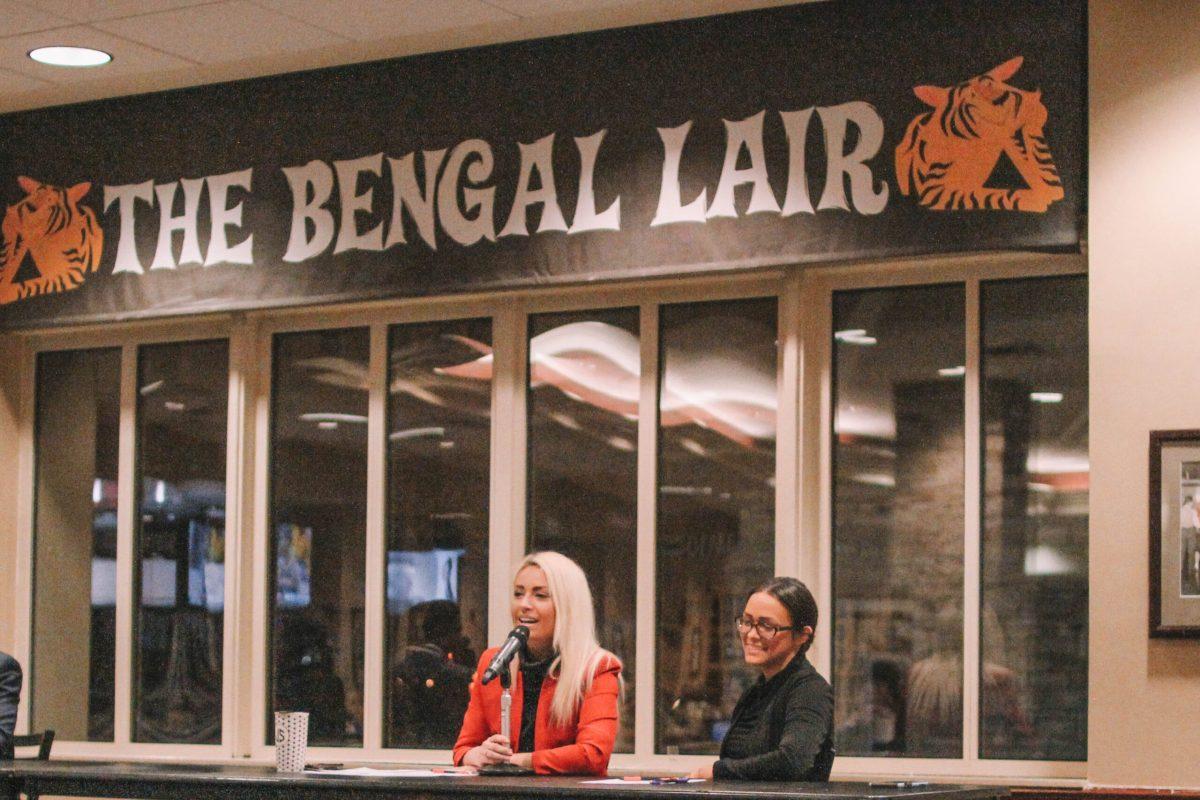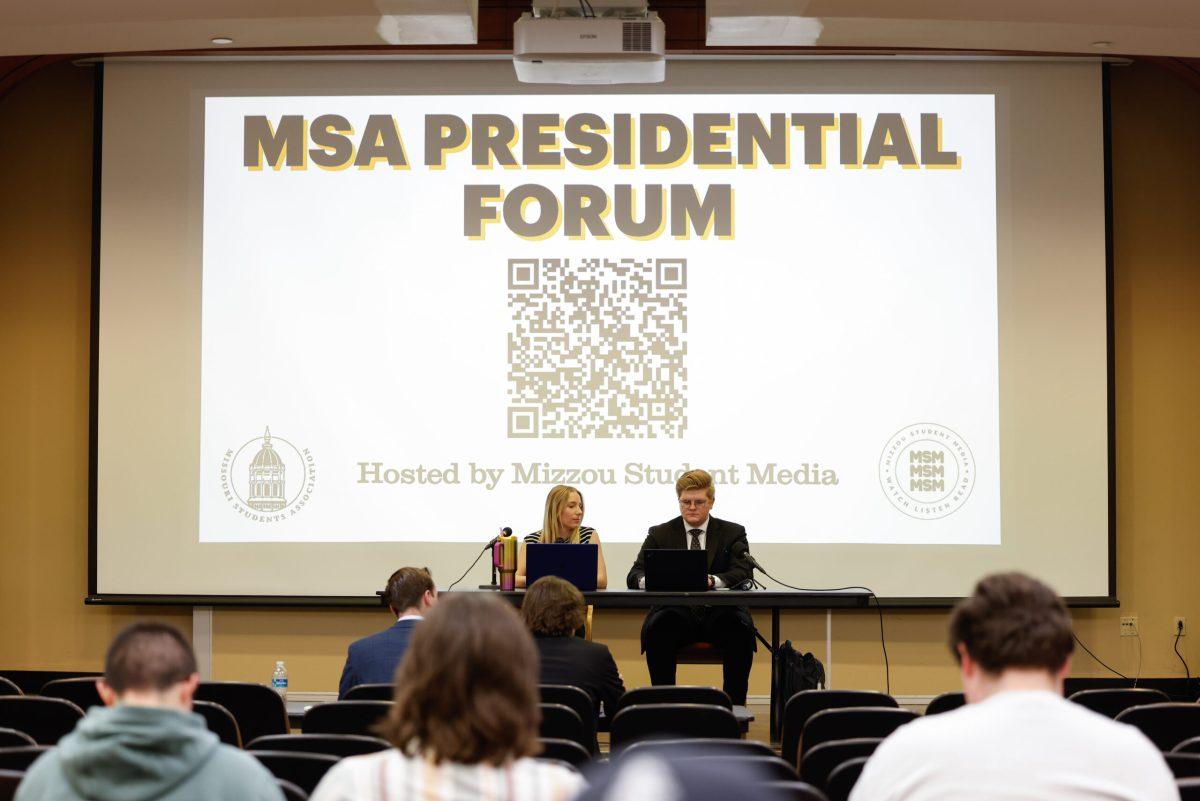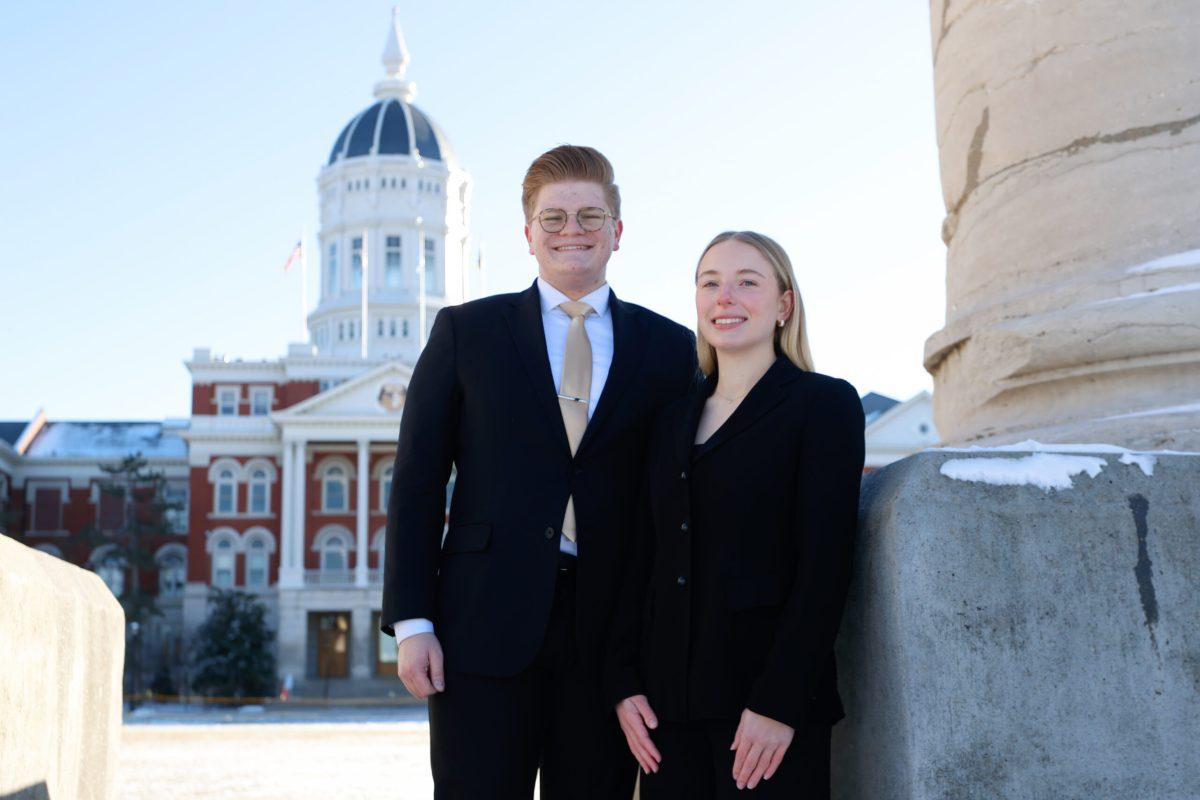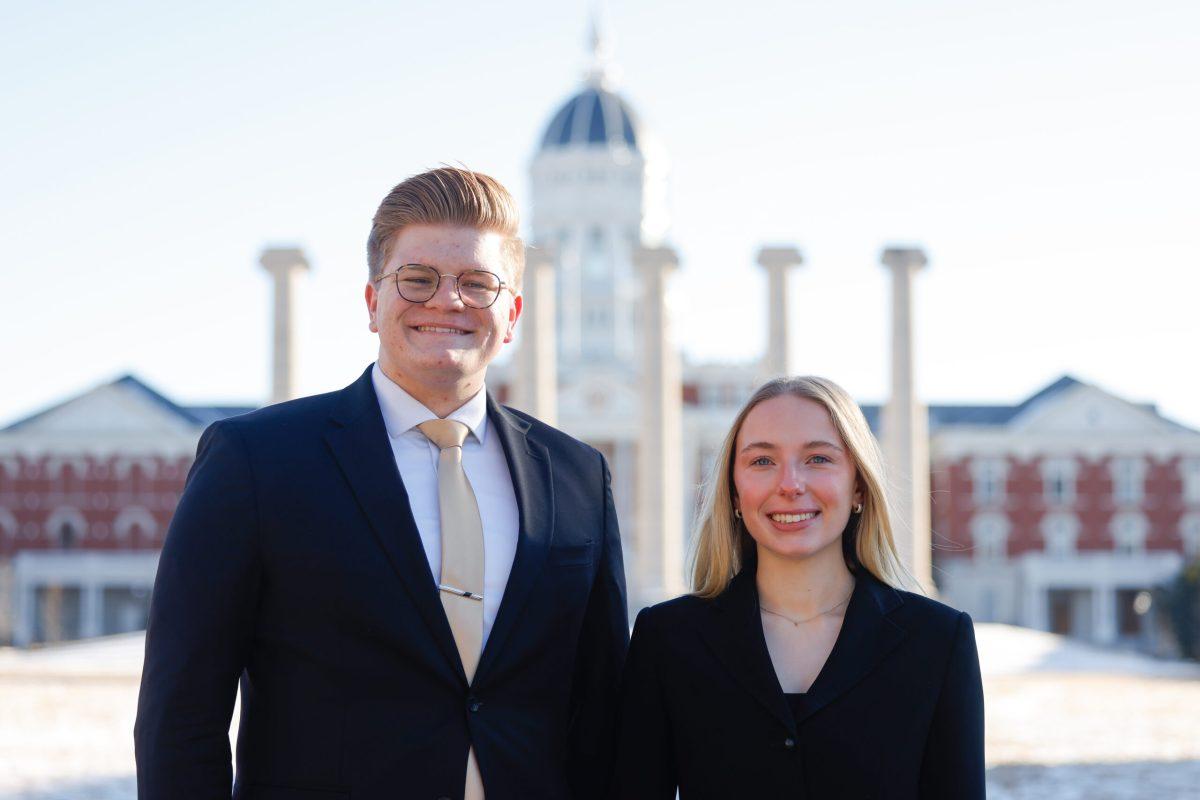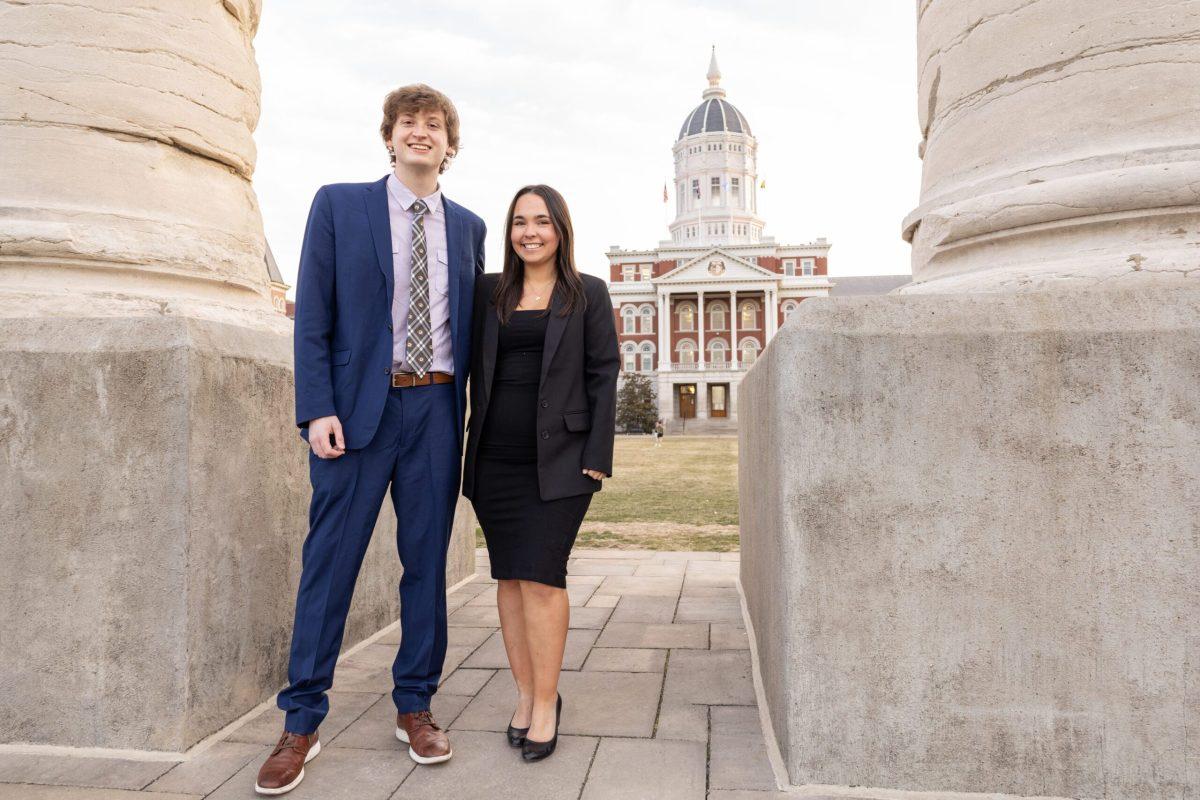Both slates in the Missouri Students Association presidential campaign spoke on issues of transparency, transportation and health in the campaign’s first debate, which took place Feb. 21.
“All In Mizzou” — comprised of presidential candidate Solomon Davis and vice presidential candidate Briana Dinwiddie — faced off against the “Show Your Stripes” slate, led by presidential candidate Jennifer Sutterer and vice presidential candidate Mary O’Brien.
The two slates often found common ground on issues facing MU, differentiating instead within the details of policy.
####1. Support was universal for bringing overdose-reversing medicine to MU####
The topic of student health was brought up on multiple occasions, and Missouri’s struggle with opioids made its way into the debate.
Upon being asked what each campaign could do to ensure student safety on campus, Sutterer brought up a policy initiative she previously introduced on her campaign’s website: bringing opioid-overdose antidotes to MU.
The policy, according to the slate’s website, would allow the access of naloxone in Greek chapter houses and MU residence halls. Naloxone reverses the effects of an opioid overdose, allowing time for emergency care to reach the person experiencing an overdose, according to the National Institute on Drug Abuse.
Davis also voiced his support for the policy, and both candidates credited Anthony Garcia, MSA’s policy and advocacy director, for the idea.
####2. Candidates see multiple paths to reforming mental health treatment processes#####
The other common student health concern voiced during the debate was both candidates’ goals to streamline and increase mental health services at MU.
Both slates mentioned support for creating an online scheduling system for on-campus mental health appointments. Under current procedure, appointments with MU’s Counseling Center must be scheduled by phone.
O’Brien said she believes scheduling by phone could be intimidating for students looking to find a time for their first appointment.
Davis also voiced support for a policy that would allow students to take a “mental health day” for classes each semester. This day would work like an approved absence due to illness, according to “All In Mizzou’s” website.
####3. Both slates view transparency as a high-level issue####
The theme of transparency in student government was mentioned early and often throughout the debate.
In response to a question about openness in MSA, Davis said in the debate he believes that students are generally unaware of basic information regarding their elected officials.
“Most students probably don’t even know that the president and vice president gets paid,” Davis said.
The MSA president makes a yearly salary of $6,600, while the vice president makes $4,500, according to the 2018-19 MSA budget.
Nonetheless, both candidates agreed that the organization could do more to reach out to students. During the debate, Davis and Sutterer vouched for an email database that would contain executive emails and operations from MSA officials.
Dinwiddie — who is not currently involved in MSA – said she believes MSA senate could make its agendas and minutes more accessible. The documents are currently published on the senate’s OrgSync.
####4. Transportation was an issue where the candidates found their own space####
While both slates mentioned a need for increased transportation options at MU, this was an area where differences were clear.
Davis said that he wanted to see more outreach from Tiger Line, the university’s on- and off-campus transit system. MU students pay for Tiger Line with their student fees, therefore they can ride specified line at no extra cost, according to the Office of Off-Campus Student Services.
Sutterer’s campaign spoke more toward increasing the number of electric scooters and other “free-market options” available to students. The “Show Your Stripes” website specifically references Bird and Lime scooters as possible options.
The two slates were able to agree, however, that they would work with MU’s administration to increase safety and enforce compliance with the Americans with Disabilities Act in terms of where scooters are parked.
####5. Neither slate thinks enough is done to streamline academic technology####
Both slates framed the issue of academic technology, such as the use of iClickers in class, as one that affects college affordability.
O’Brien, speaking for Sutterer’s campaign, detailed personal frustrations about needing to use iClicker and Top Hat softwares — used to help track attendance digitally — for different classes.
The slates outlined policy goals that would establish a standardized product to be used for digital attendance or participation. They claimed this would help students avoid buying the same product multiple times and could create clearer technological expectations.
Both campaigns also stated they would like to see a syllabi database created for students. They said this would help students understand the structure of classes in advance.
The next MSA presidential debate, hosted by The Maneater, takes place at 6 p.m. on Feb. 27 in Mumford Hall 133.
_Edited by Stephi Smith | [email protected]_


